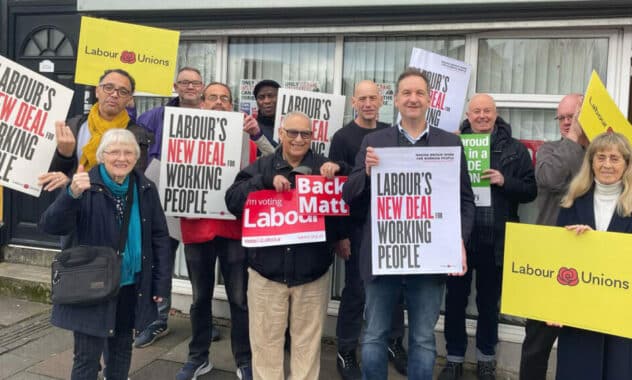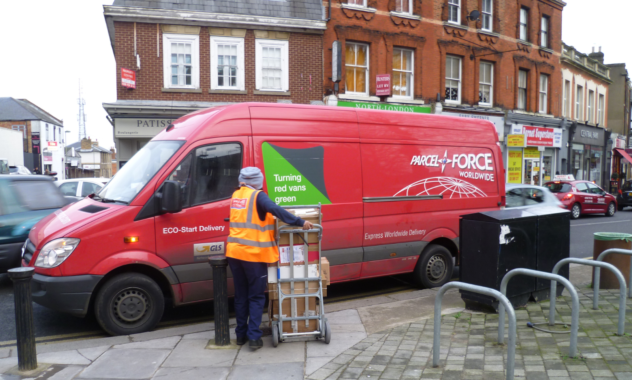Minimum wage to increase for UK workers this month
The new rates come as household incomes are under increasing strain due to the rising cost of living.

Increases in the minimum wage for UK workers came into effect on the 1st of April, benefiting approximately two million people. These increases followed recommendations made to the Government by the Low Pay Commission in the autumn and were announced by the Chancellor in October.
The new rates of the National Living Wage (NLW) and National Minimum Wage (NMW) came into effect this month. The National Living Wage is for anyone over the age of 23, and the National Minimum Wage has differential minimum wage rates which apply to 21-22 year olds, 18-20 year olds, 16-17 year olds and apprentices aged under 19 or in the first year of an apprenticeship.
Minimum wage changes:
- National Living Wage for over-23s: from £8.91 to £9.50 an hour
- National Minimum Wage for those aged 21-22: from £8.36 to £9.18
- National Minimum Wage for 18 to 20-year-olds: from £6.56 to £6.83
- National Minimum Wage for under-18s: from £4.62 to £4.81
- The Apprentice rate: from £4.30 to £4.81
The apprentice rate applies to people aged under 19, or people over 19 but in the first year of their apprenticeship.
If apprentices are older than 19 and have finished the first year of their apprenticeship, they are entitled to the relevant minimum wage for their age group.
The minimum wage is the same across all parts of the UK.
Bryan Sanderson, Chair of the Low Pay Commission, said:
“Minimum wage workers across the United Kingdom continue to play a vital role in ensuring a strong post-pandemic economic recovery. In previous years the LPC has sought to keep increases to the minimum wage above inflation. However, inflation is now expected to be higher than the forecasts we had when we made our recommendations last October.”
UK workers are currently experiencing a cost of living crisis with the highest inflation rates in decades and a new increase in National Insurance contributions this month, squeezing even more of workers’ income.
What is the real Living Wage?
The Living Wage Foundation sets out a separate real Living Wage, currently set at £11.05 in London and £9.90 in the rest of the UK. This figure is calculated according to the basic cost of living in the UK, and employers choose to pay the Living Wage on a voluntary basis.
Katherine Chapman, Director, Living Wage Foundation, said:
“The National Living Wage rise is welcome news for low paid workers, but it remains significantly lower than a real Living Wage based on what it actually costs to live. Even before the cost of living crisis, millions of workers and families were struggling to stay afloat.
With bills continuing to rise, many more are now at risk of falling into financial hardship. If we’re to weather this storm we need employers to take action now, step up, and provide a real Living Wage that meets every day needs, giving security and stability for both employers and workers.”
Unions’ response to Chancellor Rishi Sunak’s Budget statement in October:
Sharon Graham, Unite General Secretary said:
“A 59p rise in the National Minimum Wage falls well short of the pay rise low-paid workers need. It is also very far short of the pay rises workers are already winning for themselves through trade union action.
“It isn’t enough to talk about returning to pay levels before Covid, when workers already faced the longest wage squeeze in modern history.”
Christina McAnea, UNISON General Secretary said:
“Public sector workers won’t be raising many glasses to the chancellor. With no certainty pay will rise above inflation, services will go on shedding experienced staff.
Only time will tell if the government’s public sector wage policy is thawing. Otherwise, the pay freeze ends in name only.
Wage rises below the cost of living are effectively pay cuts and won’t reduce the 200,000-plus vacancies across the NHS and social care.”
Gary Smith, GMB General Secretary said:
“The Chancellor’s budget is big on headline-capturing announcements but scant on detail.
Saying you will lift the pay freeze that has ground down public sector workers is meaningless if we don’t even know if wages will increase above inflation.
Public sector workers must be guaranteed a proper real terms pay rise if the Conservatives are to start making up for their ruinous decade of austerity. “The planned increase to the minimum wage is not enough to lift people out of poverty and it won’t level up our regions and nations.







